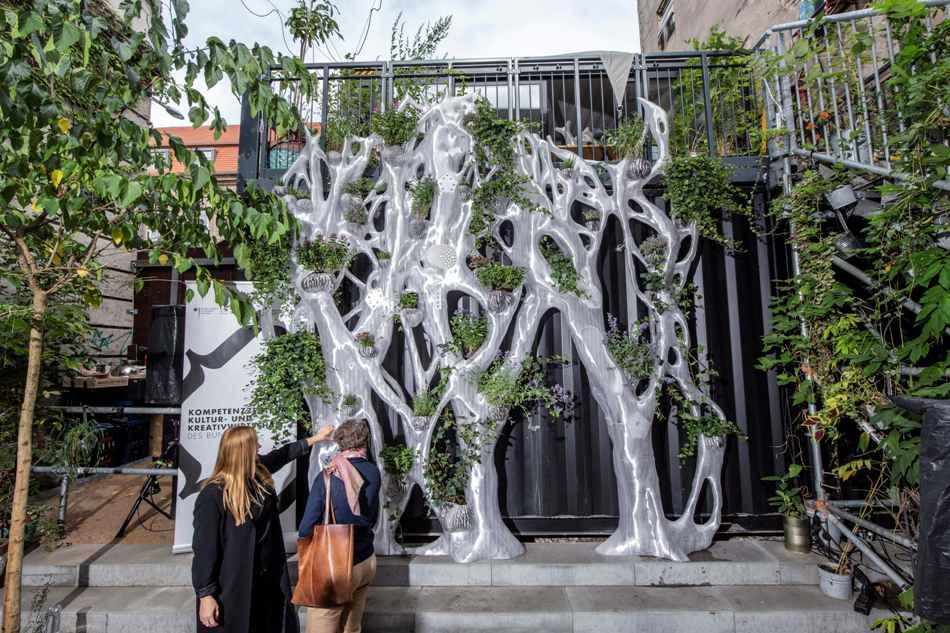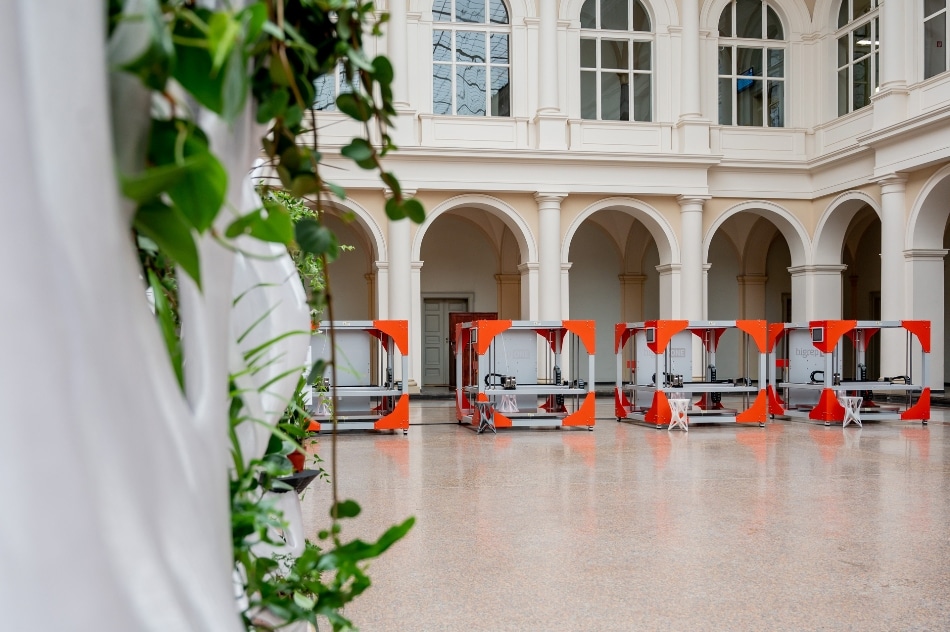BigRep’s latest innovation is tackling some of the world’s biggest environmental challenges. Plastic recycling, wasted water, and rapidly deteriorating biodiversity in urban settings are being fought with a groundbreaking prototype in urban architecture: the GENESIS Eco Screen.

The GENESIS, a fully 3D printed urban biodiversity habitat, was designed by Lindsay Lawson, an Applications Specialist at NOWLAB, BigRep’s innovation consultancy. The GENESIS Eco Screen takes advantage of solar radiation analysis for agent-based modeling and parametric design to create a computer-generated final product with unique characteristics specific to its environment. The design process ensures that each GENESIS iteration has ideal placement for its plants, insect habitats, and embedded channels for water flow and drainage for the setting it will be installed in.
Measuring an impressive 4 by 4 meters, the GENESIS Eco Screen is printed with BigRep PETG filament and BASF Innofil3D rPET made of 100% recycled PET on four large-format BigRep ONE printers. It is installed in Berlin, Germany at Invalidenstraße 86 where Germany’s Federal Center of Excellence for the Cultural and Creative Industries (Kompetenzzentrum Kultur- und Kreativwirtschaft) hosted Fiction Forum on behalf of the Federal Ministry for Economic Affairs and Energy.

Created to demonstrate the environmental opportunities presented by additive manufacturing technology, the GENESIS highlights circular economy solutions to abundant plastic waste. Aimed at minimizing waste by closing the gap between resource input, waste, emissions and energy usage, circular economy is an important concept to reduce raw material consumption and divert useful materials from landfills. At Fiction Forum, where the GENESIS was printed live throughout August in Thaersaal, the active BigRep ONE printers were displayed with a Dual Axel Shredder, designed by Raw Paradise, to underscore the 100% recycled rPET filament being used and the potential for additive projects made using common PET waste.
Daniel Büning, a fellow of the Kompetenzzentrum and NOWLAB’s Managing Director, lauded the innovation saying, “disruptive technologies such as 3D printing are key to solving some of the world’s biggest problems. The GENESIS Eco Screen shows how society can develop a greener future – with circular economy solutions that are sustainable, local, modular and collaborative.”
The GENESIS Eco Screen: a fully 3D printed urban ecosystem